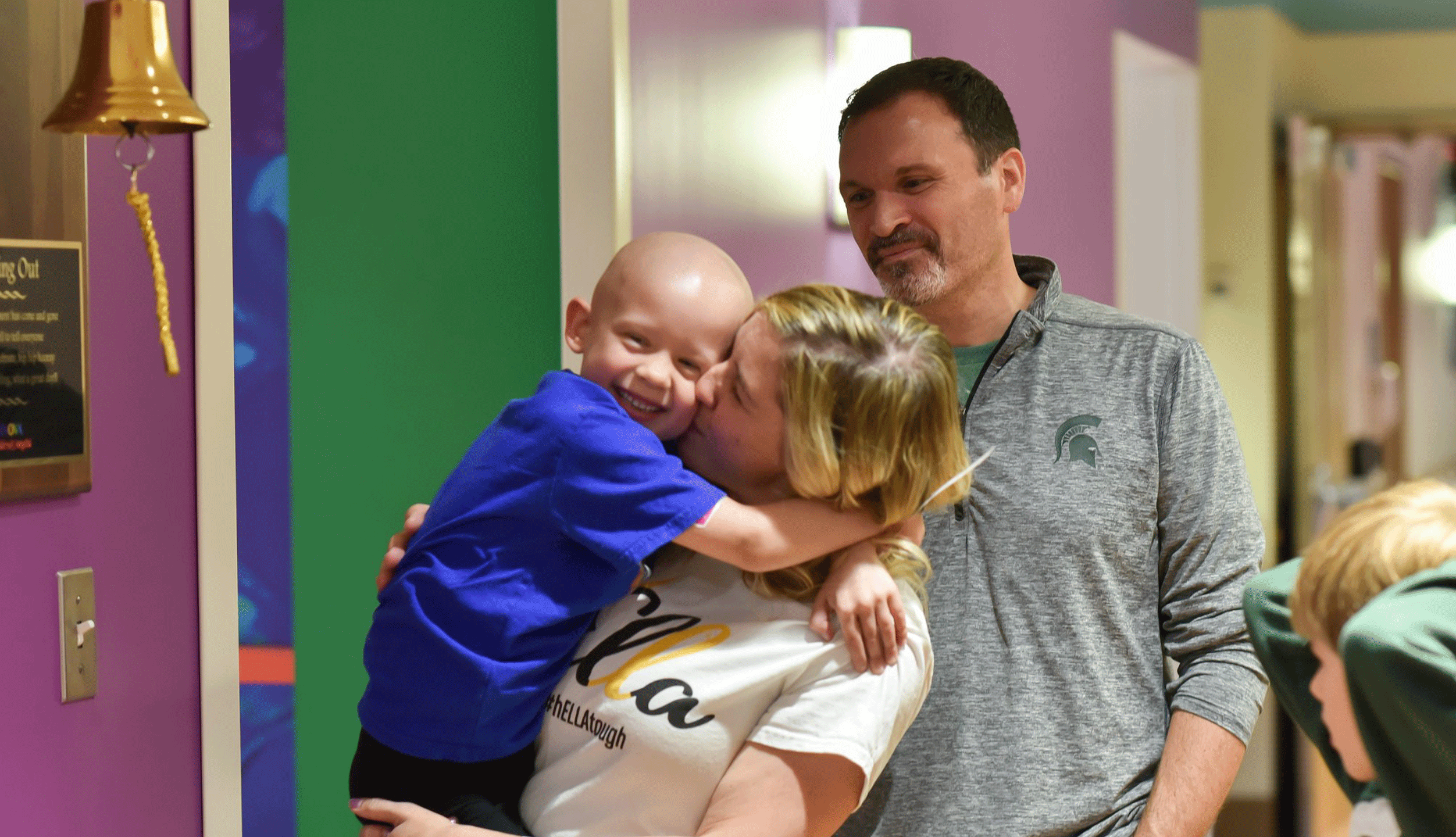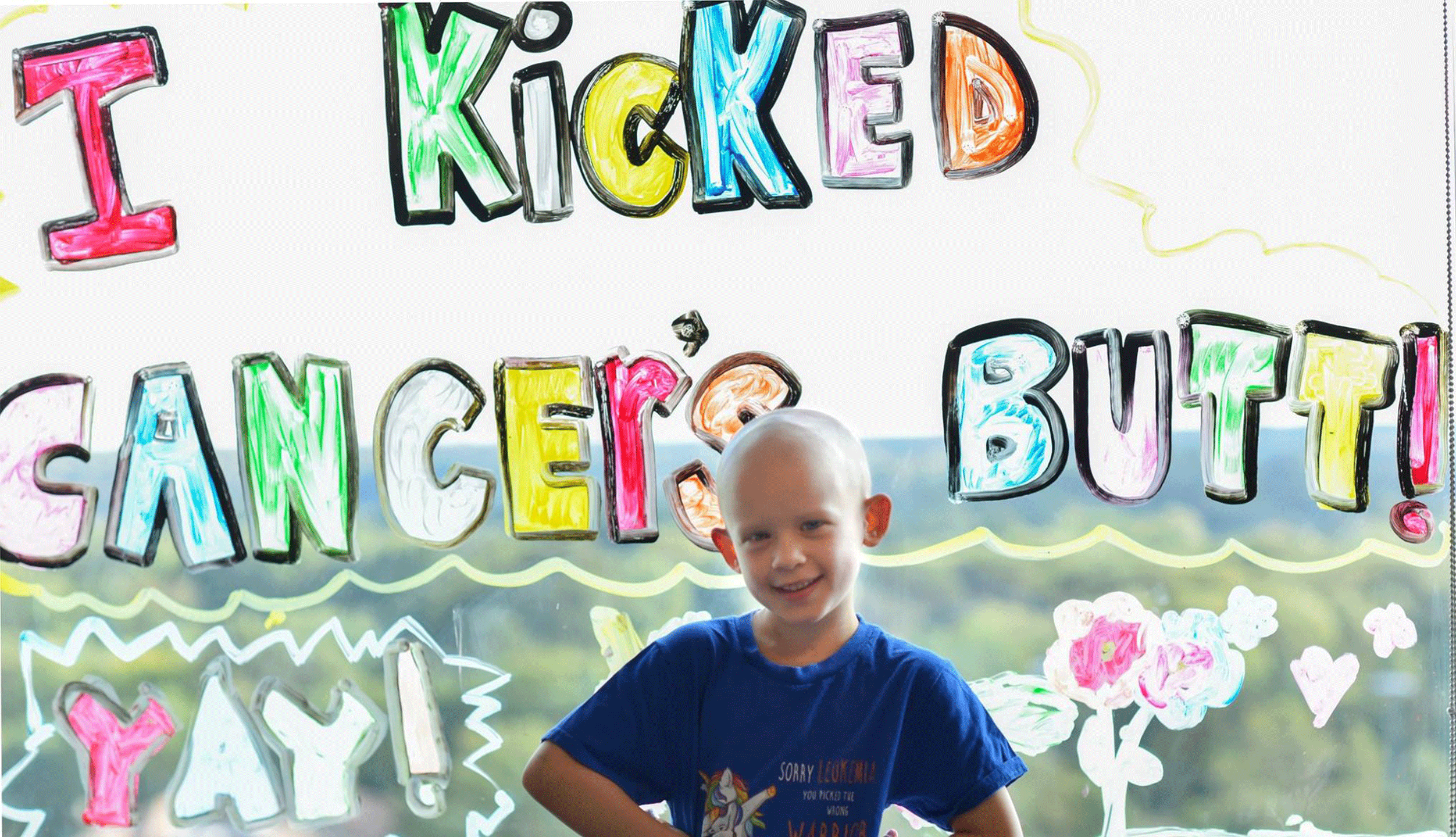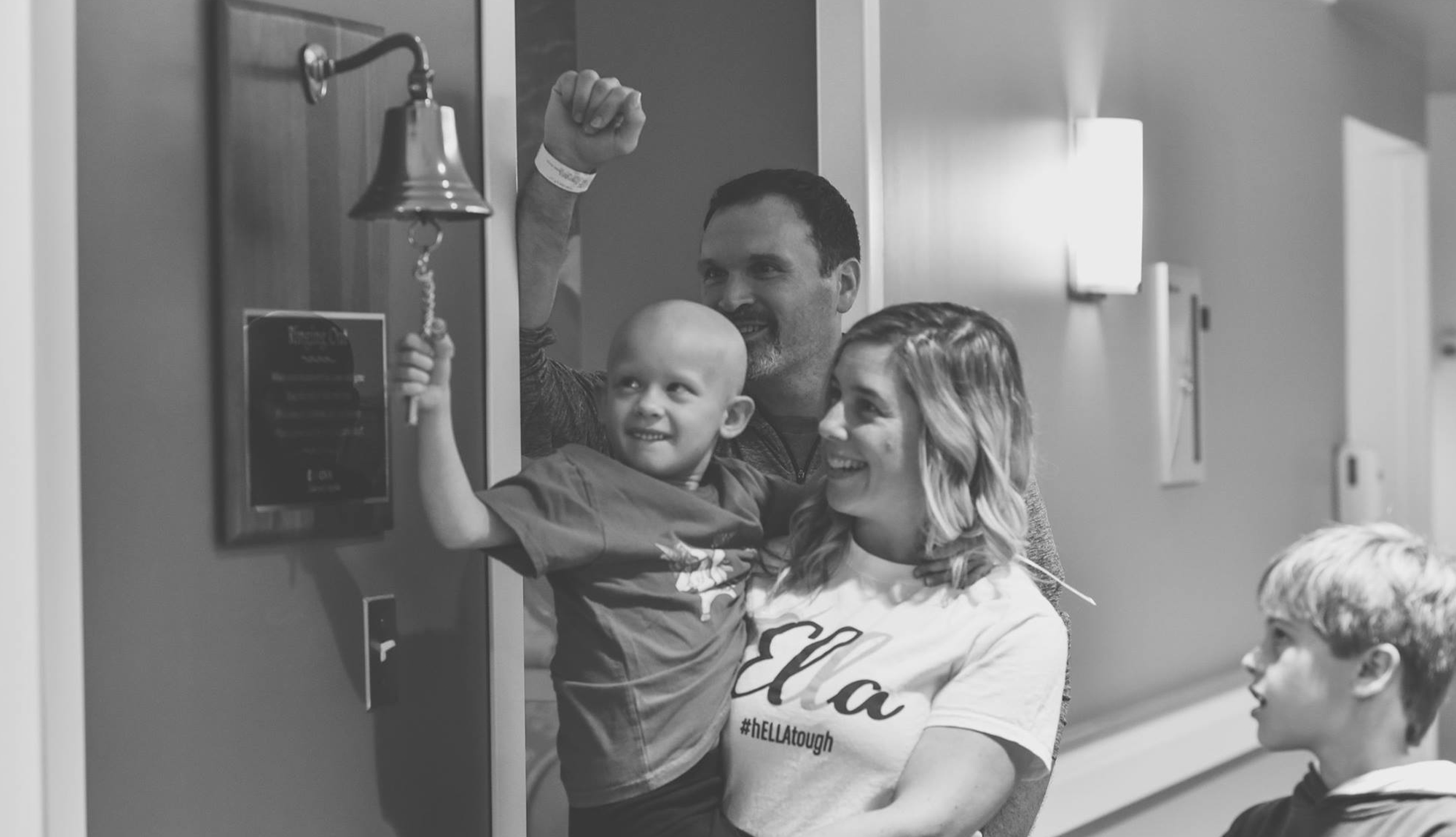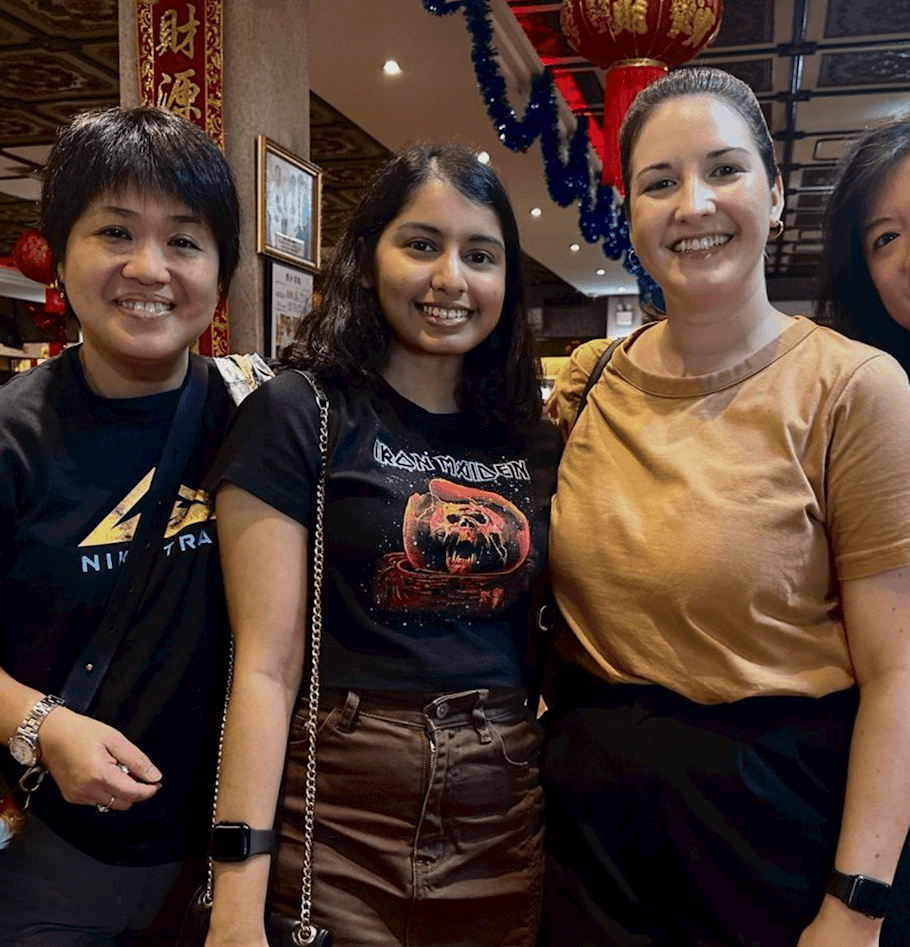How a family battle with cancer can bring new perspective to work-life balance
West Monroe’s Dave Borowski has been forever changed by his daughter’s battle with acute myeloid leukemia
Dave Borowski spent more than a decade as a high-powered consultant, traveling the country and advising clients on business process transformation and outsourcing. But his life changed forever in 2018 when his 6-year-old daughter Ella was diagnosed with acute myeloid leukemia.
Ella is now on the path to full recovery. But the past few years taught Dave how work-life balance changes when you’re balancing your child’s life. It also taught him the importance of giving back, which is clear in his support of a number of non-profit organizations, including Wolfpack Childhood Cancer Foundation and the Leukemia and Lymphoma Society (LLS), which both provide financial and emotional support to pediatric oncology patients and their families while raising funds to find cures.
We talked with Dave about how he navigated maintaining his passion for serving clients while facing an unimaginable crisis at home.
Can you describe your family’s experience and what Ella went through over the past few years?
DB: In May 2018, Ella—who was 6—was increasingly lethargic. She had inexplicable bruises, and her mouth, throat, and gums began to swell. At first, we chalked it up to a particularly bad allergy season. But after picking her up early from school on two consecutive days, we took her to the pediatrician's office. A diagnosis of leukemia came the next day, and we immediately rushed her to the hospital. Testing later confirmed that she had acute myeloid leukemia, which only affects about 500 kids in the United States per year.
Ella began a repeating cycle of treatment in which she received intense chemotherapy for six to 10 days, and then waited until her immune system reached a nadir—an absolute neutrophil count of zero. Because it affected her body's ability to protect itself from basic diseases, bacteria, and viruses, Ella had to go through a recovery period of several weeks in the hospital before she could return home, where she’d recover enough to go through the cycle all over again. Each round of chemotherapy took 30 to 45 days in the hospital, followed by about a week at home. We spent 135 nights in the hospital before she was sent home for good that October.
When you realized you had to maintain a job while also fighting this disease, how did you switch gears? How were you able to go back and forth between clients and the hospital?
DB: I had to acknowledge that work couldn’t be the same as it was before. In the beginning, I took a leave of absence—six months while she went through initial treatment and then two months later on. We were incredibly fortunate to be in a position where we could be around Ella during that time. Later, there were periods when she would be in the hospital and I would be working, but on a reduced schedule. I couldn’t travel, and I worked from hospital rooms and restaurants––anywhere that was reasonably quiet and had decent Wi-Fi. Once I fully returned to work, I set clear expectations about what I could and couldn’t support. It was still brutal at times because fear lingers in the back of your mind, and I was constantly fatigued. You never really rest or sleep soundly—in the hospital, or even at home.
Dave is running to be the Leukemia & Lymphoma Society’s Man of the Year in his community. In 2021, his daughter Ella was nominated to be Girl of the Year for the Mid-Atlantic Region, raising over $3.5 million for the organization. You can help Dave and his family raise money here.
Describe the support you got from your colleagues at work.
DB: Our colleagues regularly visited the hospital, and they often came by to check in on us, say hi to Ella, and bring her gifts. They went through this experience alongside us and demonstrated their support—not just through words, but with actions. It’s impossible to express how grateful we are for that level of consideration and empathy. Leadership from West Monroe and Pace Harmon—which West Monroe acquired in 2020—has done everything right. They were always willing to get financially creative so I could support my family while I was on leave. And, of course, we had an amazing insurance plan, which is not something everybody can take advantage of.
What was your most challenging moment?
DB: It’s tough to choose just one, but several months after Ella was sent home in October 2018, blood work showed declining platelet counts and doctors performed a bone marrow biopsy to determine the cause. At that point, she was an energetic 7-year-old, but tests showed she had relapsed. They told us that chemotherapy wasn't going to work on its own and that she would require a bone marrow transplant to survive. She needed a donor. Luckily, our 10-year-old son Noah turned out to be a perfect sibling match—something that only had a 25% chance of happening.
Soon after, we went back to INOVA Fairfax Hospital for another round of chemo to get Ella back into remission. Then we transferred her to Johns Hopkins Hospital in Baltimore, where their team could perform the transplant. From there, she went through a period of intense treatment, undergoing myeloablative chemotherapy, which obliterated her immune system irreparably––a necessity for the transplant to work. We stayed close to the hospital for three months in case anything happened, but fortunately she had a pretty uneventful recovery. She was discharged in January 2020, signaling the end of treatment, and I’m happy to say she’s doing very well.
What inspired you during this difficult time?
DB: I was inspired by several moments. The first that comes to mind is when Ella rang the bell for the first time, which signified the end of her treatment. Throughout everything, her resilience and optimism never ceased to amaze me. Here’s a little girl who spent months in the hospital, who couldn’t go to school or hang out with her friends, who endured hundreds of pokes and transfusions, who lost her hair twice. And in almost every picture we have of her during that period, she’s smiling and trying to enjoy life.
I also was moved by my son’s choice donate his bone marrow. We didn’t want to force him to do something that he was not comfortable doing—we wanted him to come to the right conclusion on his own. He was scared that they were actually going to remove his bones and give them to his sister, but he was willing to do it even if it hurt. I can’t imagine being prouder of that young man. That he was willing to give not just a bone marrow sample, but donate his own bones to save his sister's life? And having that type of pressure as a 10-year old? That was truly inspiring.
You are now an advocate for the Leukemia and Lymphoma Society. Tell us about this role and why you’ve taken it on.
DB: As our family has reflected on our experiences and the type of support that we have received from different organizations—family, friends, colleagues, co-workers—we were inspired to pay them back and pay it forward to others. We wanted to impact folks who were affected by childhood cancer and do what we could to prevent it from happening to other people in the future.
If you go back 50 years, a diagnosis of leukemia in a child was a death sentence. Whether it was ALL, AML, or another type of blood cancer, there was 5% chance of survival. Now, it's over 90%, and that’s because organizations like LLS have raised money and funded research for decades. Recognizing how instrumental they were in saving my daughter’s life, we were happy to pay back their generosity by getting involved.
How has this experience changed you as a leader?
DB: More than anything, it’s made me realize that there’s more to life than work. Many leaders are wired to drive hard and focus on results. But an experience like this forces you to become more empathetic. As a result, health and wellness is now something I always think about and advocate to my teams.
Something I love about West Monroe is the emphasis we’ve placed on balance, mental health, and community service. My hope is that a campaign like this will elevate our firm’s appreciation of how much of an impact we can make on the world. It’s likely that many lives will be saved as a result of our efforts, and that’s pretty special.




